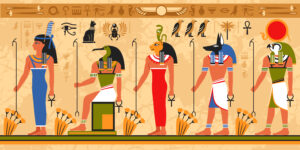“Now in the twelfth month (that is, the month Adar), on the thirteenth day when the king’s command and edict were about to be executed, on the day when the enemies of the Jews hoped to gain the mastery over them, it was turned to the contrary so that the Jews themselves gained the mastery over those who hated them” (Esth 9:1).
According to the Israeli Bible scholar, Yonatan Grossman, this verse expresses the literary strategy of the Scroll of Esther: “it was turned to the contrary.” The entire book unfolds in a series of completely unexpected and obviously miraculous reversals! Who would have ever imagined that the abject humiliation and bitter sufferings of one Jewish man was the road to Mordecai’s exaltation and salvation of his entire people?!
How can we not but see the person of Jesus reflected in this little book which, though never using the word “God,” is the most explicit example of his providential care in even the smallest details?!
As we meditate on the miraculous reversals in the Purim story, let us find assurance in God’s providential purpose to use the sufferings of one Jewish man to ultimately fill Jerusalem and all the cities of this world with joy when Jesus finally returns to sit upon David’s throne! “When Mordecai learned all that had been done, he tore his clothes, put on sackcloth and ashes, and went out into the midst of the city and wailed loudly and bitterly…. In each and every province where the command and decree of the king came, there was great mourning among the Jews, with fasting, weeping and wailing; and many lay on sackcloth and ashes.” (Esth 4:1, 3).
“Then Mordecai went out from the presence of the king in royal robes of blue and white, with a large crown of gold and a garment of fine linen and purple; and the city of Susa shouted and rejoiced. For the Jews there was light and gladness and joy and honor. In each and every province and in each and every city, wherever the king’s commandment and his decree arrived, there was gladness and joy for the Jews, a feast and a holiday. And many among the peoples of the land became Jews, for the dread of the Jews had fallen on them” (Esth 8:15-17).










